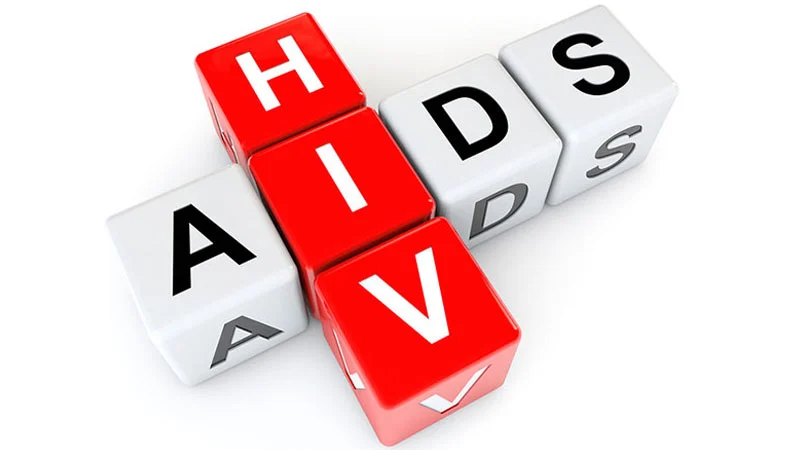
HIV & AIDS Treatment in Chennai - Aura Sexual Health Clinic
Effective Treatment for HIV & AIDS in Chennai
Aura Sexual Health Clinic in Chennai is dedicated to providing comprehensive and compassionate care for individuals living with HIV and AIDS. With proper treatment, HIV is a manageable condition, and those affected by the virus can live a healthy, normal life. Our clinic specializes in HIV treatment, AIDS care, and HIV prevention services, taking a holistic approach to managing the virus for improved overall well-being.
What is HIV & AIDS?
HIV (Human Immunodeficiency Virus) is a virus that attacks the body’s immune system, specifically targeting CD4 cells (T cells), which are vital for protecting the body against infections. Without proper treatment, HIV can progress to AIDS (Acquired Immunodeficiency Syndrome), a condition that severely weakens the immune system and increases susceptibility to infections and certain cancers.
Key Points:
- HIV: A virus that infects the immune system, weakening the body’s defenses against illness.
- AIDS: The final stage of HIV infection, marked by severe immune system damage and increased vulnerability to infections.
- Transmission: HIV is transmitted through vaginal and anal intercourse, sharing needles, and from mother to child during childbirth or breastfeeding.
HIV & AIDS Treatment at Aura Sexual Health Clinic
At Aura Sexual Health Clinic, we offer advanced treatments to manage HIV and prevent its progression to AIDS. Our experienced healthcare team provides a range of services to support you throughout your journey:
- Antiretroviral Therapy (ART): ART is the cornerstone of HIV management. It involves taking multiple medications to delay viral replication, maintain immune function, and reduce the risk of HIV transmission. ART can suppress viral levels to undetectable levels, preventing the disease from advancing into AIDS. We tailor ART to each patient’s unique needs for the best outcomes.
- Continuous Monitoring and Support: Regular monitoring of your viral load and CD4 count is crucial for managing HIV effectively. Our team provides ongoing support, including managing side effects and adjusting treatment when necessary to ensure optimal results.
- Care and Support for AIDS: For those diagnosed with AIDS, we offer comprehensive care to prevent infections and manage complications. We focus on strengthening your immune system through medication, nutrition, and lifestyle support.
- Services for HIV Prevention: We provide prevention services for those at high risk of exposure to HIV, including pre-exposure prophylaxis (PrEP) and post-exposure prophylaxis (PEP). Both are proven effective in preventing HIV infection when used correctly.
Why Choose Aura Sexual Health Clinic for HIV & AIDS Treatment?
Aura Sexual Health Clinic is the trusted provider of HIV & AIDS treatment in Chennai, offering:
- Experienced HIV Specialists: Our team includes highly trained doctors with expertise in managing HIV and AIDS, ensuring top-quality care tailored to your needs.
- Personalized Treatment Plans: We understand that each person’s journey with HIV is unique, which is why we offer customized treatment plans to meet your specific health needs.
- Confidential Care: Your privacy is our priority. All consultations and treatments are conducted in a confidential, non-judgmental environment.
- Comprehensive Support: From diagnosis to lifelong care, we provide continuous support to help you manage your condition and live your life to the fullest.
- Cutting-Edge Medication: We use the latest ART medications and treatments to ensure the best possible outcomes for our patients.
Early Diagnosis and Regular Monitoring
Early diagnosis significantly enhances the effectiveness of HIV treatment. Testing is crucial for individuals who may have been exposed to the virus or are considered at high risk. Early treatment can prevent HIV from progressing to AIDS and reduce the severity of complications. At Aura Sexual Health Clinic, we offer private HIV testing, including tests for early stages of the virus when symptoms may not yet appear. Regular follow-ups ensure that your treatment plan is working and your immune system remains healthy.
Preventing HIV Transmission
While HIV treatment helps people live longer, healthier lives, it’s also important to focus on prevention. Here are key methods to prevent HIV transmission:
- Use Protection: Consistent and correct use of condoms can significantly reduce the risk of HIV transmission during sex.
- PrEP: Pre-exposure prophylaxis (PrEP) is a medication that helps prevent HIV infection in individuals at high risk of exposure.
- PEP: Post-exposure prophylaxis (PEP) is a treatment that can be taken after potential exposure to HIV to prevent infection.
- Testing Regularly: If you are at risk or unsure of your HIV status, regular testing is essential for early detection and preventing further spread of the virus.
Book an Appointment for HIV & AIDS Treatment in Chennai
If you are concerned about HIV or need advice on prevention or treatment, don’t wait. Book an appointment today with our expert doctors at Aura Sexual Health Clinic, Chennai. We provide holistic care to guide you safely through the process of diagnosis, treatment, and management of HIV and AIDS.
Meet With Doctor